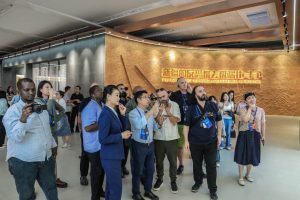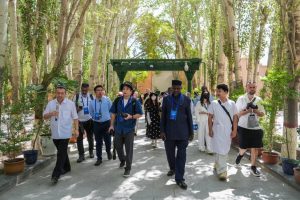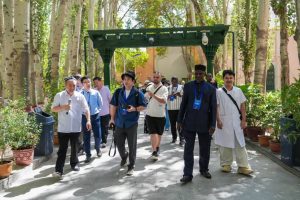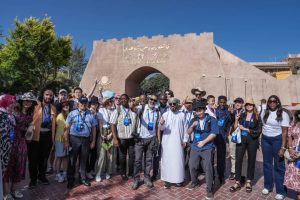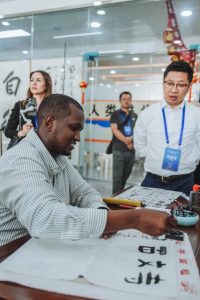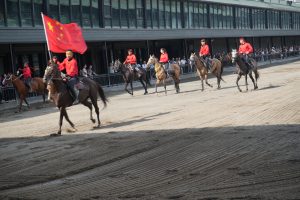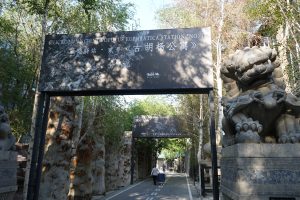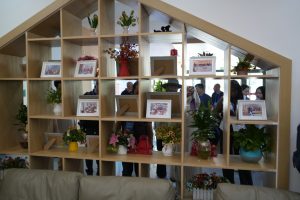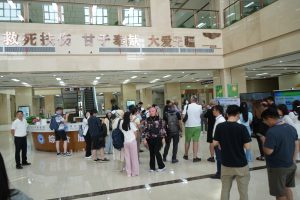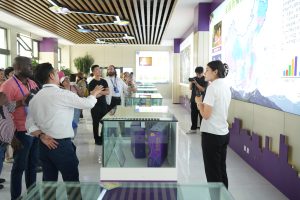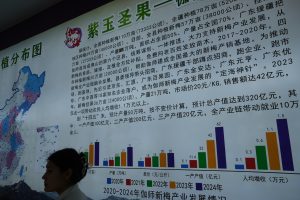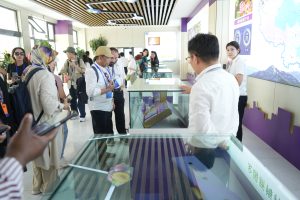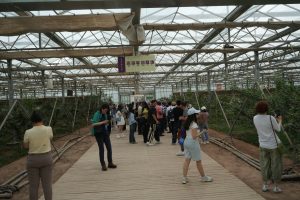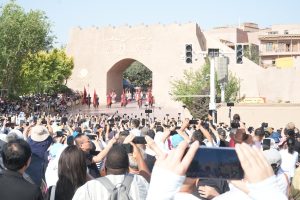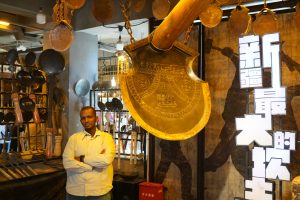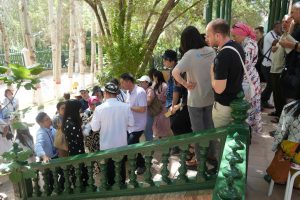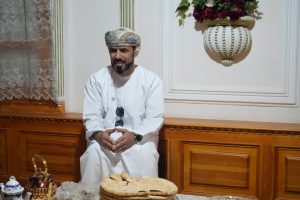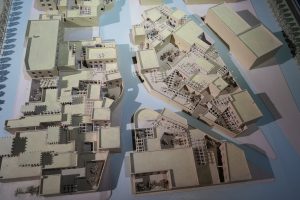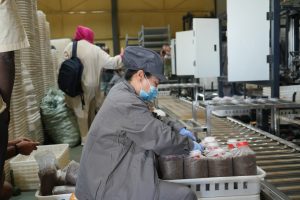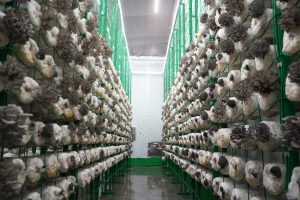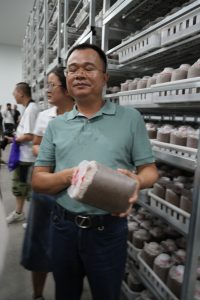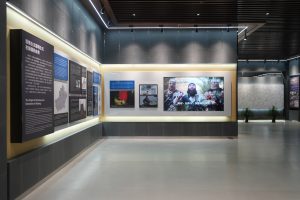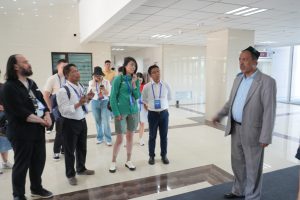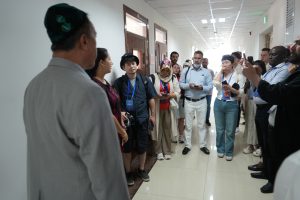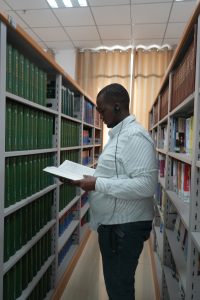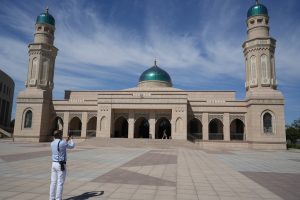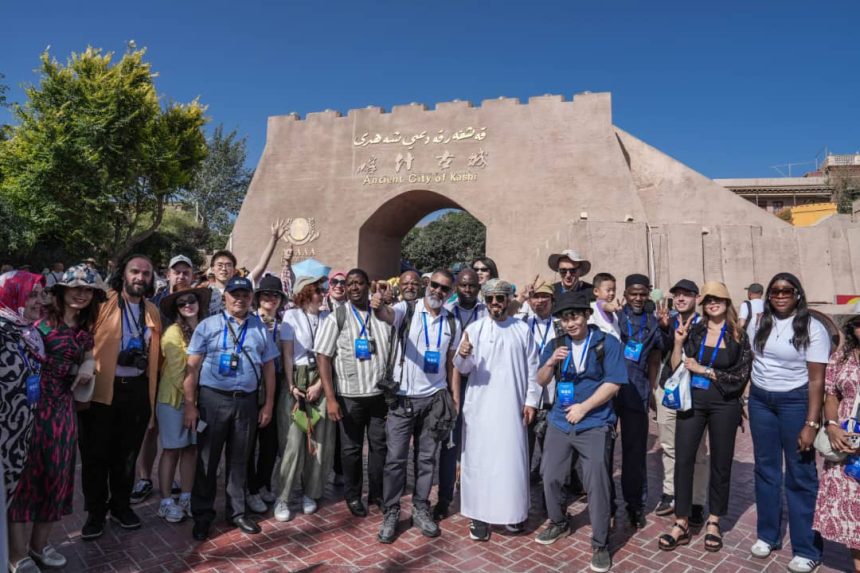By Abdiqani Abdullahi (SONNA)
Kashgar, China – July 11, 2025 – Having concluded an insightful and extensive tour of the Xinjiang Uyghur Autonomous Region, the Somali National News Agency (SONNA) delegation can attest to a reality often misrepresented: Xinjiang today presents a compelling narrative of peace, prosperity, and remarkable societal harmony. Far from the one-dimensional portrayals often seen in some international media, our observations on the ground reveal a region where diverse communities coexist, supported by a government committed to both economic upliftment and cultural preservation. This journey has offered invaluable perspectives, particularly for nations like Somalia, grappling with the pervasive challenge of terrorism and striving for sustainable development.
One of the most striking observations from our time here is the palpable sense of well-being among the people of Xinjiang. Across various cities and rural areas, there is clear evidence of comprehensive support from both regional and national governments. This support fosters an environment where people of different faiths and backgrounds live and interact freely, dispelling notions of widespread discord. We have personally witnessed the unhindered mingling of individuals from various religious groups, underscoring a prevailing atmosphere of mutual respect.
The commitment to religious freedom, particularly for the Muslim community, stands out. Our findings indicate that the government actively respects the beliefs of its citizens. This respect is not merely passive; it extends to tangible support, including the construction and renovation of numerous places of worship. A prominent example of this dedication is the state-of-the-art, modern Islamic institute, capable of housing over one thousand students, which has received substantial government backing. This institution serves as a vital center for religious education and scholarship, a clear demonstration of the government’s investment in supporting the spiritual life of its Muslim population1.
Beyond religious facilities, the preservation of Uyghur culture is a significant priority. Through the establishment of museums and cultural centers, there are concerted efforts to safeguard and promote the rich heritage of the Uyghur people in Xinjiang. These initiatives ensure that cultural identity is maintained and celebrated alongside regional development.
Economically, the empowerment of local communities, especially farmers, is a cornerstone of Xinjiang’s success. Our delegation observed a robust system where farmers receive constant training and the technical know-how to maximize their farmland output. This strategic investment in agricultural education is complemented by innovative infrastructure. In this arid climate, the government has ingeniously harnessed the melting snow from the mountains to provide essential irrigation water, transforming barren lands into fertile grounds2. Furthermore, farmers are provided with necessary plant varieties, specifically selected for superior yields, to kickstart highly productive cultivation. This comprehensive approach to agriculture extends to industrial support, with the government backing industries that process farmers’ products and facilitate their marketing both nationally and internationally. This integrated system ensures that the entire agricultural value chain benefits local communities, leading to improved livelihoods for thousands of households3333.
From our comprehensive observations, it is evident that the Muslim population in Xinjiang has received substantial support, achieving a level of economic and social progress that places them in a remarkably advantageous position when compared to many other Muslim communities globally. The pervasive sense of tranquility and the visible signs of development strongly suggest a society that is not only peaceful but also actively thriving.
A critical dimension of Xinjiang’s journey, and one that resonates deeply with Somalia’s current challenges, is its success in overcoming terrorism. Terrorism is a debilitating affliction that cripples countries and economies, derailing development agendas and sowing discord. China’s steadfast resolve and effective measures in countering this grave threat, despite considerable international scrutiny and often what appears to be manipulation and misrepresentation, should be acknowledged and admired. The stability and progress witnessed in Xinjiang stand as a compelling counter-narrative to the devastation wrought by extremism.
For Somalia, which continues to grapple with the debilitating effects of terrorism, the experiences of Xinjiang offer invaluable lessons. The integrated approach to economic empowerment, cultural preservation, and robust security measures employed in Xinjiang has demonstrably worked to bring stability and prosperity to its communities. It provides a powerful precedent that successful practices and counter-terrorism measures can indeed pave the way for progress, even in the face of daunting challenges. Somalia stands to benefit immensely by studying and potentially adapting aspects of China’s successful strategies to reach a similar level of development and communal peace for its own people.
The SONNA delegation leaves Xinjiang with a clear understanding: this is a region charting its own course towards a future of sustained prosperity, underpinned by social harmony and effective governance. Its journey offers hope and practical guidance for nations striving to overcome adversity and build a brighter future for their citizens.

